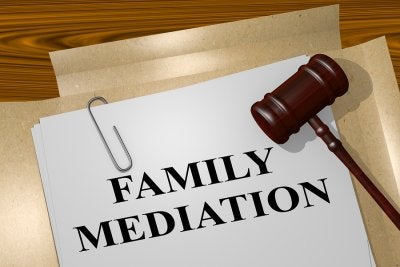Mediation is an effective alternative to court. During mediation sessions in Baltimore, a neutral third party helps parties who are at odds with each other explore the issues and discover mutually agreeable solutions. Mediation is useful for many situations, including family law matters such as child custody disputes. Even when parents have experienced significant breakdowns in communication, they may decide to attempt custody mediation in order to make the arrangements themselves, rather than entrust the custody decisions to a judge. 
Children may have a limited role in custody mediation.
In most cases, children are not involved in settling custody disputes. Family law judges do not generally want to see minor children in the courtroom because of the significant stress this can inflict and the potential damage to family relationships. The same is true of custody mediation sessions. One of the goals of settling custody disputes is to avoid putting children in the middle; they should never feel as though they must choose one parent over the other. That being said, there may be some situations in which children can play a very limited role in custody mediation, provided that neither of the parents attempts to influence the children.
Children can aid in the identification of challenges.
Although children may not participate in the actual mediation sessions with all three parties, the mediator may decide to meet with the children separately to hold a low-stress discussion of the family situation. The mediator must be careful not to create a psychologically difficult situation for the children. Instead of asking a question such as, “Which parent would you rather live with?” the mediator might ask, “Who usually helps you with your homework?” The mediator might also prompt the children to identify challenges that may be settled during the mediation sessions. For example, a child might express concern about being able to participate in sports or other after-school activities despite the visitation schedule. The mediator can then bring these challenges into the mediation sessions and guide the parents in working toward solutions.


